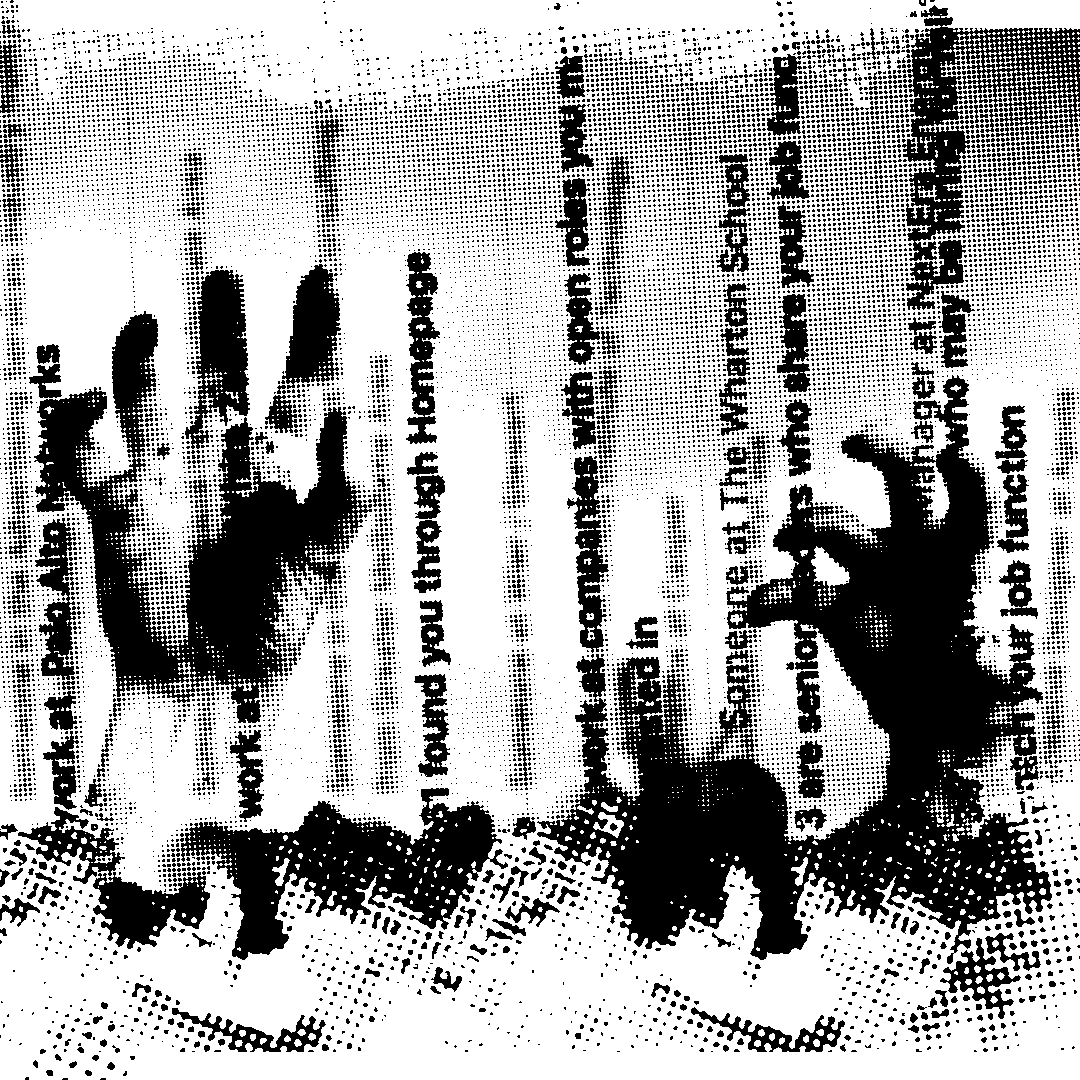LinkedIn does not equal opportunity.
The platform feels like a bad career fair hosted inside an empty mall with Spirit Halloween on one end and a Family Dollar on the other. Inside we're all wandering around like zombies from Dawn of the Dead, desperately trying to look employable. Especially the ones wearing that green sash. Pssst, that ain't gonna do shit. You will likely have a better chance of getting your next job by holding up a sign at a freeway intersection.
Seriously, when is the last time someone you know landed a role because of LinkedIn? I'm sure it happens here and there, but it's not the universal experience the platform wants us to believe. Yet here we are, 220 million of us—likely more by now—refreshing web browsers, frantically tweaking our profiles like we're optimizing slot machines—liking threads to demonstrate proof of life. Look, no shade my friends, I've been there.
So I decided to flip the script. Instead of performing my professional worth for algorithms that don't care and "recruiters" who are likely AI agents scanning for keywords, I turned my LinkedIn profile into what it should have been all along: honest employee reviews of every company I've worked for—complete with star ratings.
Here's a sneak preview…
- InVision *°°°° 1/5 stars — "Most toxic company I've ever worked for. Led by a man-child who didn't know what he was doing. Would not recommend (oops, I forgot it imploded due to bad leadership)."
- LexBlog: **°°° 2/5 stars — "Family business dysfunction at its finest. Got immediately locked out of all systems after giving four weeks' notice. 'Nothing personal,' said the CEO."
- IBM: ***** 5/5 stars — "Most transformative, positive experience of my career. What Phil Gilbert created is a masterclass in what's possible when a massive organization commits to real change."
…you get the idea.
Why are we polishing professional fiction when we could be telling professional truth? We've turned ourselves into carefully curated avatars designed to please algorithms, and we're dying inside from all the performance.
Hundreds of millions of people are signaling "I want out" while simultaneously pretending everything's fine. That's not networking. That's collective delusion with premium features.
Instead of crafting bullet points designed to impress robots, I chose dignity over optimization. I wrote real assessments of real experiences—calling out the bullshit and celebrating the good. And you know what? It feels incredible! You can go look at my profile if you want to see what happens when you stop being a professional avatar and start being a human being with actual opinions.
We need some punk rock in that place.
Now, I know not everyone can do this. Your industry, your situation, your circumstances might make this too risky. I see you. If you're in that place, write out your truth on a piece of paper and stand tall—burn it later if you have to—but give yourself time and space to be honest.
This isn't about LinkedIn strategy. This is about psychological liberation. Maybe just looking at your truth on paper will help lift some stress off your back. Maybe it'll help you realize that we don't have to carry the weight of professional performance everywhere we go. Yell! Scream! Kick out the bullshit that you and I have been allowing to live rent free in our hearts and minds for too long.
Most of the people checking your profile aren't checking to see if you're qualified for a role—they're checking to see how you're doing. The LinkedIn profile view is the new "thinking of you" text. Just call me if you really give a shit.
So why not give them something real to see? Your LinkedIn profile doesn't have to be a performance piece designed to optimize your way into another soul-crushing situation. It can be a truth-telling space where you choose dignity over optimization—where you rate your experiences honestly, call out dysfunction when you see it, and celebrate the work that actually mattered.
Because at the end of the day, the only person who needs to be impressed by your professional story is you. And you can't impress yourself with professional fiction.
The platform wants us performing, not reflecting. It wants us optimizing, not being honest. It wants us believing that if we just craft the perfect professional avatar, opportunity will follow.
But what if we just stopped believing that? What if we used the space to tell our real stories instead of optimizing our way into the next performance?
I turned my LinkedIn into a company review site. Not for recruiters. Not for algorithms. For me. And for anyone else who’s tired of shuffling through professional theater like a zombie instead of living with dignity.


Member discussion